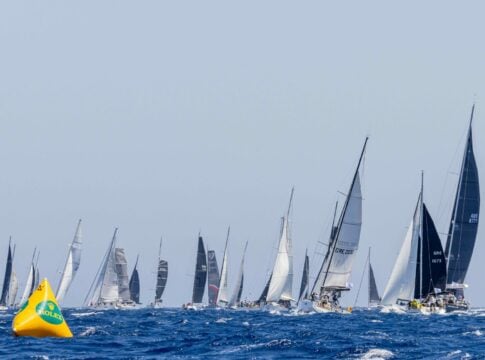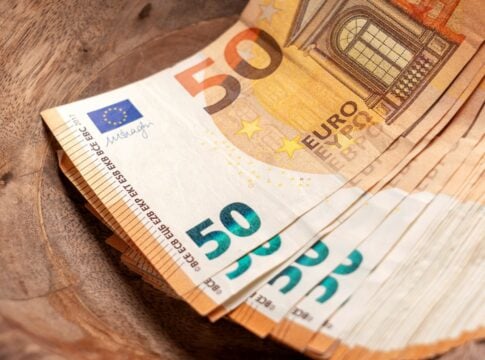Former European Central Bank (ECB) head Mario Draghi met business leaders in Milan to prepare a report on how to enhance the EU’s competitiveness. Draghi has been mandated by European Commission President Ursula von der Leyen to come up with proposals to revitalise the European Union’s economy amid competition from China and the United States.
European sources told “Naftemporiki” that the meeting was successful. The three-hour meeting held at Bankitalia’s headquarters in Milan was attended by 59 presidents and CEOs of key European industries, including Dimitris Papalexopoulos, president of the Hellenic Federation of Enterprises (SEV) and head of the Titan cement industry.
The meeting, which took place at the initiative of the “European Round Table for Industry” (ErT), was behind closed doors. According to “Naftemporiki” sources, however, the European business leaders gave Draghi “valuable recommendations to prepare the report that has been requested of him since last September by the president of the European Commission.” As Draghi said, “I came here to listen to your proposals.”
“Chips Act” Model
European sources told “Naftemporiki” that European business leaders have asked Draghi to improve the European legislation, which is generally considered too punitive. They also noted that they can use the “Chips Act” as a “positive model.” This model has been used since September 2023 and aims to strengthen the strategic sector of semiconductors, raising the global share of the EU market from the current 10% to at least 20% by 2030.
The EU budget will support this effort with an amount totaling 3.3 billion euros. “It is a formula that, as business leaders said, could also be reproduced in the most innovative sectors,” the same sources underlined to “Naftemporiki” and added: “We must deal with the fact that more and more European companies will be attracted by the huge subsidies offered by US President Joe Biden, through the IRA (Inflation Reduction Act). A law that offers 738 billion dollars to attract businessmen whose production is related to green energy to the United States.”
Three priorities
The “European Round Table for Industry” (ErT) is a think tank of presidents and directors of the continent’s main industrial groups. For the record, the meeting was attended by, among others, top executives from the German companies Siemens, Basf, Deutsche Telekom, Mercedes, BMW, Merck, the French L’Oréal, Michelin, Total, Saint Gobain, the British BP and GSK and from the multinationals ArcelorMittal, Shell, Rio Tinto, Unilever, Airbus.
The president of ErT and Vodafone, Jean-François van Boxmeer, emphasized that the three-hour meeting with Draghi “was not a common appointment.”
The report to be drawn up by Draghi will be presented immediately “after the European elections” and will be “the road map for the next European Commission on how to improve and restore Europe’s competitiveness,” van Boxmeer said, while pointing to the priorities: digitalization, innovation and green transition. “The goal is to decisively strengthen the competitiveness of European industry, which is increasingly being undermined by the Chinese and the Americans,” European sources underlined.
Draghi’s “platform”
Draghi’s “platform” could be the basis on which the new EU industrial policy will be built over the next five years. European business leaders set four priorities: “Competitiveness and internal market”, “Energy and climate”, “Digitalisation” and “Trade.”
These are the most important sectors in which the competitiveness of European industry will be judged. As it was emphasized at the meeting, from 2001 to today, Europe has lost 30% of its share in the world market, taking into account the added value, that is, the wealth created by the transformation of raw materials into finished products.
In 2001 the EU controlled more than 20% of the market and in 2020 it fell to 14.3%. The United States even recorded a retreat, with its share falling over the same period from 22% to 16.3%. By contrast, China started at 8% and is now at 27.3%.














